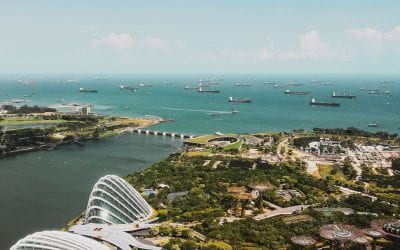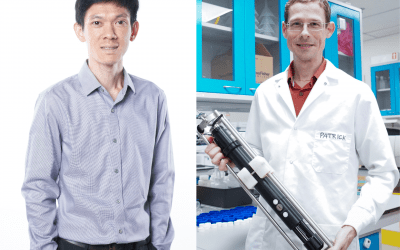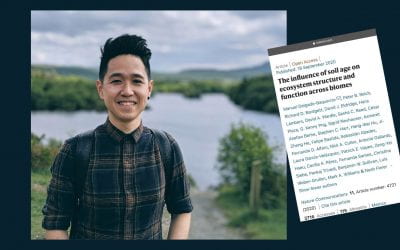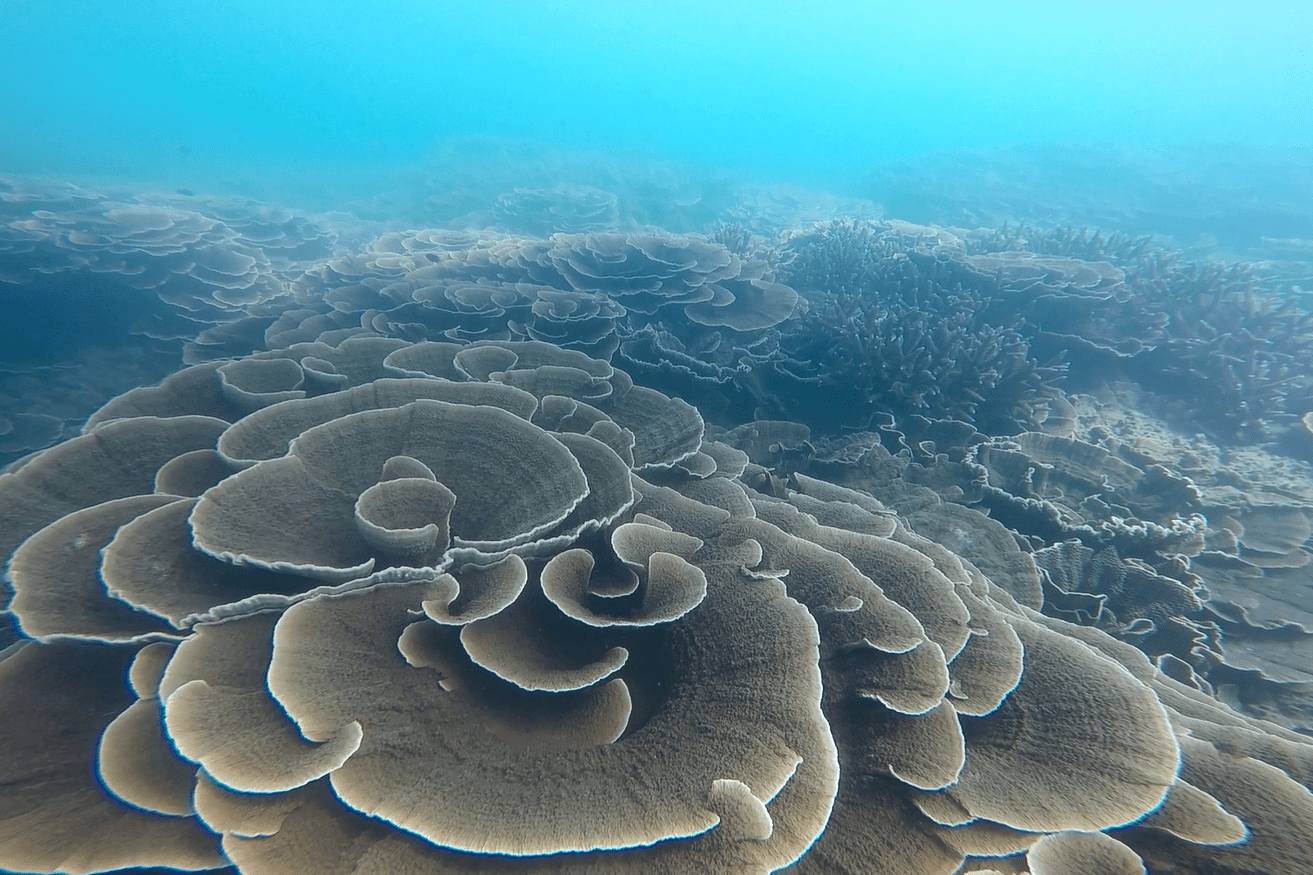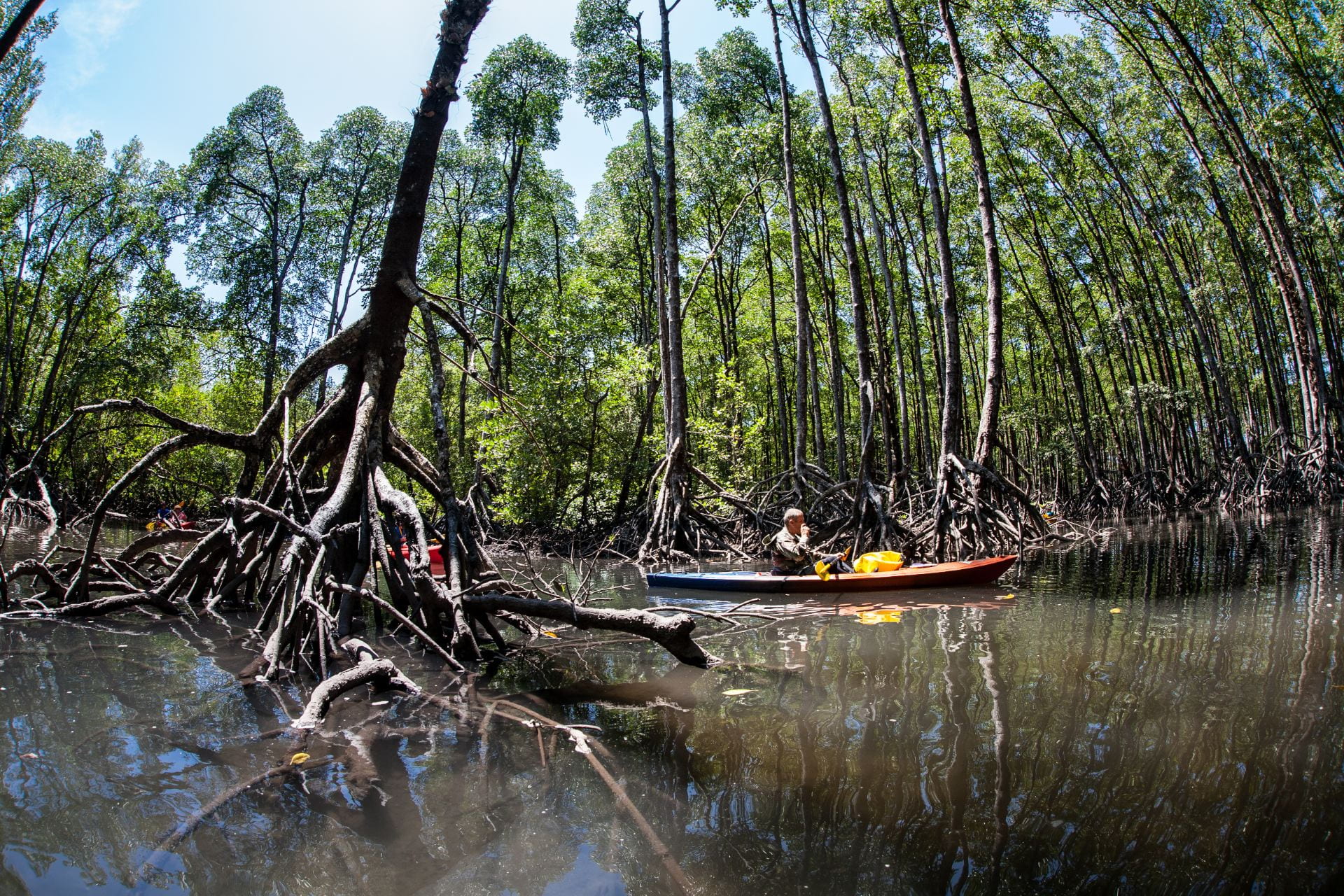Scientists from NTU have recently discovered that Earth’s rising temperatures – due to global warming – are having a greater influence on atmospheric methane levels. Rising global temperatures are causing methane levels to increase, which in turn is leading to further climate warming.
Ozone Formation vs. Suppression – The Present and Future
While the ozone layer protects the Earth from harmful UV rays, excess amounts of ozone can result in adverse health effects in humans. A study led by @NTU_ASE A/P Steve Yim analyzes the ozone-temperature relationship and projects future ozone concentrations.
Tectonic plate subduction is a carbon sink – new discovery by Prof Redfern’s team
In a recent study published in Nature Communications, Prof Simon Redfern and his team show that subduction zones can be carbon sinks, contributing to the long-term storage of carbon in the deep Earth and thereby keeping it from re-entering the atmosphere as CO2. The flows of carbon between the Earth’s crust and the atmosphere are important processes regulating global atmospheric CO2 concentration.
Sea Level Change – a Growing Threat to Coastal Cities
Coastal cities like Singapore are heavily affected by changing sea levels. Two scientists from ASE, Associate Professor Adam Switzer and Professor Benjamin Horton are leading teams to look for solutions to help mitigate the effects.
NERC-NRF SEAP Grant to Assoc Prof Federico Lauro and Team to Study Marine Plastic Pollution in Southeast Asia
A multidisciplinary team of researchers, including Associate Professor Federico Lauro (PI) and Assistant Professor Patrick Martin (Co-I) from ASE, have been awarded the NERC-NRF SEAP research grant to study marine microplastic waste in Southeast Asia.
CoS Collaborative Research Award Winners to Develop Environmentally Friendly Procedure for Environmental Nitrate Measurements
Congratulations to Assistant Professor Patrick Martin (ASE) and Associate Professor Soo Han Seen (SPMS) for winning the College of Science (CoS) collaborative research project to develop a more environmentally friendly procedure for nitrate analysis.
Impact of Climate & Land Use Change Override Natural History in Influence on Forest Ecosystems, Global Study Shows
Global climatic and land-use changes are the factors that most strongly influence change in terrestrial ecosystems today, shows a recent global study published in Nature Communications co-authored by ASE researchers Dr Kenny Png and Professor David Wardle.
Lights Out for Muddy Water Coral Reefs as Global Sea Level Rises?
Although the impacts of climate-related coral bleaching are well documented, knowledge of how sea level rise will influence reefs is limited. Global sea level rise (SLR) will present a major threat to turbid coral reefs, located in shallow coastal waters, by increasing the depth of water covering them, and reducing the amount of sunlight available on the seafloor. This will change the amount of habitat available for certain corals to grow, shows a new study led by ASE Presidential Postdoctoral Fellow and AXA Research Fellow Dr Kyle Morgan published last week in Proceedings of the Royal Society B.
Accelerating Sea Level Rise Could Drown Mangroves 30 years From Now Unless Carbon Emissions are Cut
A recent publication in Science, co-authored by ASE chair/EOS PI Prof Benjamin Horton, shows that vast areas of mangroves are under threat from sea level rise, which may cause the mangroves to drown by 2050 unless we curb climate change by cutting carbon emissions. The study surveyed 78 sites in the tropics and subtropics around the globe, using paleorecords of mangrove growth and sea level rise to predict the future of these ecologically and economically important ecosystems.
Tier 3 to ASE/EOS Prof Horton and Collaborators: Southeast Asia SEA-level Program – towards home-grown expertise on sea level science and policy
The SouthEast Asia SEA-level program, led by Prof Benjamin Horton, sets out to produce world class interdisciplinary sea-level science focused on Southeast Asia and framed to promote resilient coastal cities and communities in Singapore and the surrounding region. An important goal of the program is to train a home-grown scientific community that can respond to Singapore and Southeast Asia’s need for future sea-level projections and their interpretation, that is both the scientific basis and its translation into policy.




